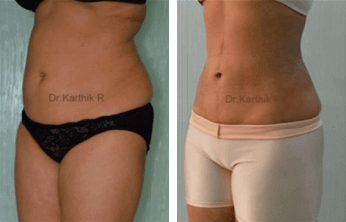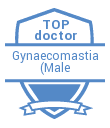Doctors Nose Best

Besides being gorgeous divas, what do Gisele Bundchen, Britney Spears, Jennifer Aniston and Salma Hayek have in common? They all have reportedly got ‘new’ noses. If you are contemplating getting Rhinoplasty done, the first step is to contact a qualified surgeon and get all your queries answered. After all, doctor knows best!Rhinoplasty, or nose job, is a procedure in cosmetic surgery that is done to improve the appearance and proportion of your nose. Aesthetic reasons aside, it is also performed to correct breathing problems caused by abnormalities in the nose. Statistics show that rhinoplasty is one of the most popular cosmetic surgeries. Gathering all the necessary knowledge helps make an informed choice about rhinoplasty.
Rhinoplasty can change your
- Nose size
- Nose width
- Nose profile
- Nasal tip
- Nostrils
- Nasal asymmetry and deviation
You can have a rhinoplasty if
- You have specific, but realistic goals in mind for the improvement of your appearance
- You are 18 years or older, or if your facial growth is complete
- You are physically healthy
Nose cosmetic surgery is a highly individualized procedure and you should do it for yourself, not to fulfil someone else’s desires or to try to fit any sort of ideal image.
What will happen in your first consultation?
Be prepared to discuss:
- Why you want the surgery, your expectations and desired outcome
- Medical conditions, drug allergies and previous medical treatments
- Use of current medications, vitamins, herbal supplements, alcohol, tobacco and drugs
- Previous surgeries.
Your surgeon may also:
- Evaluate your general health status and any pre-existing health conditions or risk factors
- Examine and measure your face
- Take photographs for your medical record
- Discuss your options and recommend a course of reshaping your nose
- Discuss likely outcomes of a nose surgery and any risks or potential complications
- Discuss the type of anaesthesia that will be used
Following your physician’s instructions is the key to the success of your surgery.
Rhinoplasty Caveats
- It is important that the surgical incisions are not subjected to excessive force, abrasion, or motion during your recovery from rhinoplasty.
- It may take several months up to a year – and sometimes longer – for the outcome of the surgery to fully refine after rhinoplasty surgery.
- Although good results are expected, there is no guarantee. In some situations, it may not be possible to achieve optimal results with a single surgical procedure. Another minor surgery may be necessary to reach the intended aesthetic goal.
Rhinoplasty terms to know
Rhinoplasty: Surgery to reshape the nose.
Cartilage: Connective tissue that forms the structure of the nose.
Columella: The narrow strip of tissue that separates the nostrils.
Deviated septum: Cartilage that separates the nostrils is misaligned which may cause partial nasal airway obstruction.
General anaesthesia: Drugs and/or gases used during an operation to relieve pain and alter consciousness.
Haematoma: Blood pooling beneath the skin.
Intravenous sedation: Sedatives administered by injection into a vein to help you relax.
Local anaesthesia: A drug injected directly to the site of an incision during an operation to relieve pain.
Questions to ask your surgeon
- Use this checklist as a guide during your nose surgery consultation.
- Are you certified by the Board of Plastic Surgery?
- Are you a member of a Society of Plastic Surgeons?
- Were you specifically trained in the field of plastic surgery?
- How many years of plastic surgery training have you had?
- Am I a good candidate for this procedure?
- What will be expected of me to get the best results?
- Where and how will you perform my procedure?
- What surgical technique is recommended for me?
- How long a recovery period can I expect, and what kind of help will I need during my recovery?
- What are the risks and complications associated with my procedure?
- How are complications handled?
- How can I expect my nose to look over time?
- What are my options if I am dissatisfied with the cosmetic outcome of my nose surgery?
- Do you have before-and-after photos I can look at for this procedure?
- What results are reasonable for me?












